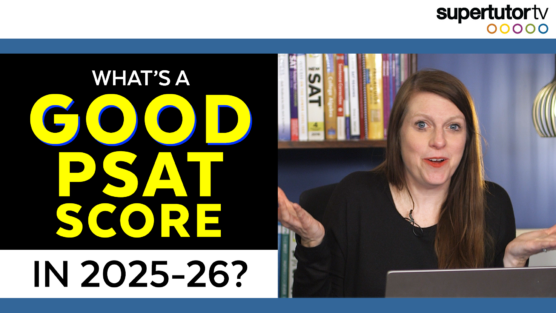When Brooke became a tutor, she kind of felt like the black sheep of the education world. She was once interviewed for a PBS documentary and said that exact statement, but they ended up mincing up her words and demonizing her, even though she’s on YouTube posting free content to try and help people learn.
First, we want to talk about the irony of this a little bit, because in some ways, tutors are awesome. One, they help students through their challenges in individual ways. Two, they get to teach in ways that address the whole student. Oftentimes, when you get to the point where you need a private tutor, it’s because the one-size-fits-all instruction didn’t work in some way, and there’s something going on that an independent tutor can really dig into. They can figure out what you need help with, why, and how you can overcome your challenges, and a lot of times, the answer isn’t just learning percents (although sometimes it is).
Erik Hoel and his Substack wrote an article back in March called “Why we stopped making Einsteins,” and he suggests that one reason that might be true is that geniuses in the olden days were aristocratically tutored, meaning they had one-on-one time with super smart people who walked them through subjects in an engaging, personalized way. And as he points out: “despite its well-known effectiveness, tutoring’s modern incarnation almost universally concerns specific tests: in America the Advanced Placements (AP) tests, the SATs, and the GREs,” which he calls “the holy trinity of private tutoring.”
So this brings us to our first point of why society hates tutors: they are associated with standardized tests. And people hate standardized tests. Nobody likes sitting in a room for five hours, grueling through something that they feel like they have to do. And because tutors often teach to the test, it’s assumed that the work that they do is simply one of two things. The first is that they’re milking a system to prey on students whose test scores probably won’t go up anyway, and tutors are just getting their money and pretending like they’re going to help them. Or, they’re just buying a test score, and if students work with tutors, they’ll show them all these tips, tricks, and secrets to the test. And then, suddenly, they’ll wave their magic wands and the student will magically get a better score on the SAT.
This, however, isn’t the case when, in fact, tutors are coaches who are working with students one-on-one to help them discover how to be adaptable and rewire their habits. Or to help them understand how to read more quickly, how to come up with multiple problem-solving strategies, how to handle percent problems, and how to use a colon. A lot of people don’t see tutors as people who are actually educating students, but they are.
Reason number two of why society hates tutors is money. In an ideal conception of society, education is not just a privilege but something of a public good or right, and something that everybody should have access to. The cost of private tutoring has expanded quite a bit over the course of Brooke’s career as a tutor, and the cost of getting somebody who’s an expert and knows what they’re talking about to work with a student one-on-one on a particular subject is expensive. Some of it is the nature of the work because it’s part-time: tutors can only do nights and weekends because kids are in school during the day. But people generally don’t like the idea of paying for something that they feel should be free.
But at the same time, there’s a ton of value to tutoring. This is the irony. Even though people don’t want to pay money for it because they think education should be free, there’s a huge demand for it. Because private tutors help students learn, and learning is so valuable to us. In a society where tutoring isn’t valued in some ways, it also means that fewer people want to go into the field, which ironically drives prices up.
This brings us to our next point: equity or fairness. Tutoring doesn’t feel fair to some people, which is true because it’s not very scalable. That’s not going to be fair because there’s a limit to how many students tutors have time to work one-on-one with to help them learn. And there’s a limit to how much of that we can afford as a society.
It’s true: tutoring isn’t fair. But just because it isn’t fair doesn’t mean we have to demonize it in society. Learning should be positive; if people are teaching other people, that should be something that is redemptive that we value as a society.
Next on our list is culture. Not all cultures treat tutoring the same. In southern Europe, for example, it’s much more common to have people working individually with other people. In Greece, 95% of university students had English support outside the classroom. In South Korea, 73.1% of middle-school students had access to private tutoring outside of school in 2021. In some Asian countries, some surveys have found that families spend 40%, on average, of their income on outside-of-the-classroom education and tutoring. We’re not saying that everyone should spend that much money, but we are saying that in other societies, what tutors do is potentially valued much more.
There is one loophole that we see here: while coaching students through the college admissions process, one of the number one activities that Brooke sees on students’ activity roster is tutoring other people, generally as a volunteer. There is an army of volunteer tutors out there who are high school students, potentially doing it for free. Brooke has talked to students that have started their own little tutoring company, and they just don’t have enough students that need help.
So our proposal would be that if you have a kid that is younger or you know people in your community who need help, you could connect with high-school or volunteer tutors or even people in nursing homes that want to tutor. There are pockets in our world that are not necessarily being utilized, and the economy of tutoring has been shoveled into just test prep. But maybe we need to expand that, and be kinder and more open to the idea that helping each other one-on-one is a good way to learn. It doesn’t always have to cost hundreds of dollars an hour. And if we built it into our culture as something that was more acceptable, maybe we would have more people who did it, and we could all benefit from it.




